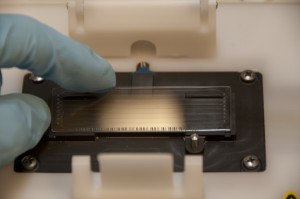Deciding to do a paternity test is a big step for a lot of people. If in addition, you can not talk to the mother, the child or the alleged father, it becomes even more stressful. You begin to think of ways to recover DNA secretly, like how to retrieve the hair or a toothbrush. Soon, you find yourself short of ideas, is there a way to do a “secret DNA test” without lying to your loved ones?
This is a question that is often asked at Paternitytestinglabs.com. Many of you have a doubt about a relationship. You also know that talking to them may hurt your loved ones and endanger family balance.
Is the consent of parents and children compulsory?
Most DNA testing laboratories require the consent of all participants in the test (or a legal representative for minors). It is a legal obligation in the country in which they are located. You should know however that sometimes an exception is made by these laboratories, when one of the participants just lost a loved one, for example his father and that the person requesting the test can prove that he is the rightful heir.
Always contact the laboratory, because even if the laboratory does not display it on its website, in some cases such as a death or a missing person, they will accept to analyze discrete or forensic samples for the missing participant.
Is it 100% certain that DNA can be recovered from discrete samples?
Step DNA sequencing for oral samples is the most used for DNA testing, the testing procedures are standardized around these swabs. Some labs do not accept non-standard samples such as hair, cigarette butts or fingernail clippings because they do not have the technical expertise or qualifications required by the local authorities to handle these samples. The extraction of DNA from these samples requires special service staff and geneticists, which is not necessarily profitable for the laboratory.
Where can I send a toothbrush or hair?
Some laboratories are located in countries where the law permits the analysis of these forensic samples, but be aware that there is a chance that the sample does not contain enough DNA or that the DNA found is too degraded. You can consult the list of non-standard samples with the DNA extraction success rates, while keeping in mind that oral sampling remains the easiest and most economical way of collecting DNA material from the participants. The laboratories charge usually an extra amount of $80 to $250 for the analysis of these non-standard samples. When there is not enough DNA to develop a genetic profile, the laboratory will request sending a new DNA sample and you will need an additional set of new samples for DNA extraction . That is why it is better to send several samples of the same type to put the odds on his side (example: 10-15 hairs).
What if participants are unwilling to give a DNA sample?
Have you tried to talk to them? It’s a good thing to do and to express your concern. Explain to them why it was important for you to eliminate this doubt and what would be the benefits for your family. See our articles on these difficult discussions: How to ask your partner for a DNA test? or Should we speak of DNA paternity test to a child?
If they do not agree today, perhaps they will in a few weeks after they have thought about it? If you can not wait, it is in these cases to think about other kinship DNA testing: siblings, uncle or grandparents.
Can I do a discreet DNA test with other members of my family?
The full sibling test allows children to see if they are brothers or half-brothers, even after the disappearance of their parents. DNA laboratories are also able to confirm a biological relationship without sample of the father or the mother of the child . The tests are more complicated, analysis times are generally longer because we must first reconstruct the DNA profile of the missing parent before we can compare that to his or her children. You’ll understand this test is also more expensive.
It is always best to have a parental sample because when the relationship is weak (uncle-niece for example), there are chances that the results are less clear, because participants have less DNA in common . The test can be secret since you do not have to talk to any of the (alleged) parents, but it will take at least the consent (and sample) of the other participants. The test can be performed with one or more of these participants:
- A brother and sister / half brothers & stepsisters: sibling test
- Grandparents: grandparents DNA test
- An uncle or aunt: avuncular DNA test
In special cases it is possible to make a test of the X or Y chromosome with a distant relative, such as a cousin or great-uncle / great aunt (brother or sister of a grandparent). We can advise you based on your family tree and family relationship to be verified, to give as much as possible information regarding your relationship (example: “my paternal grandfather had a son and a daughter, who respectively had had 2 boys and 1 boy … “).
At Paternitytestinglabs.com we know how difficult it can be to say “I think we need to do a paternity test“. That said, there will be many benefits for your family if you decide to do a DNA test. We found that when family members begin to speak honestly, they become more caring and more loving, stress decreases and the children grow up more serenely in confidence.
